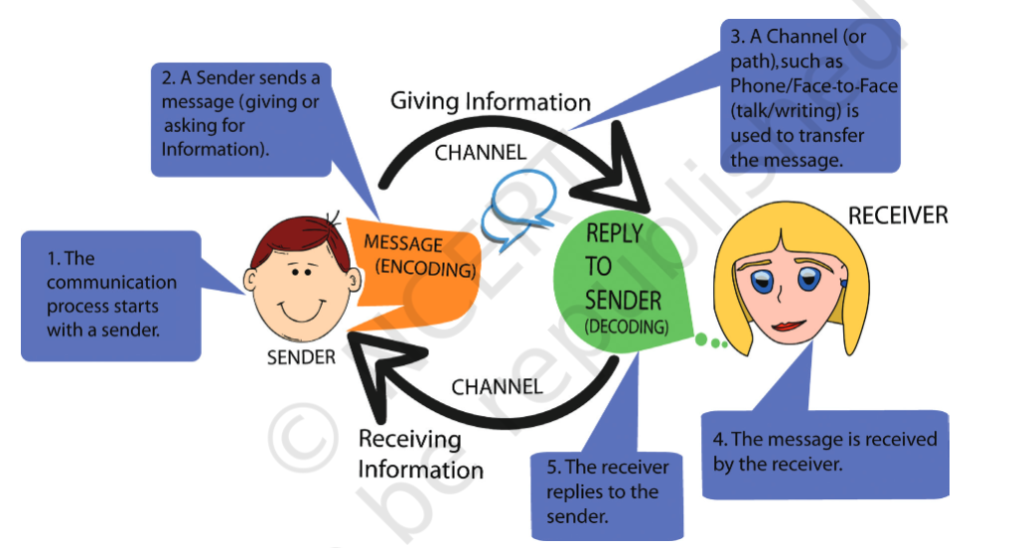Class 9 IT Communication skills
As per CBSE Syllabus in class 9 Employability Skills we are going to study 5 units. All the units are so structured to give you a good knowledge of those skills which will help you to get Employment in various sectors.Click here for notes of all units and book of class 9 employability skills. Here we will discuss the first chapter that is Communication Skills. In this there are 10 sessions.
Unit 1: Communication Skills
Session 1 : Introduction to Communication
Communication skills are those skills which are needed to speak and write properly.
What is communication?
Sharing of information from one person to other by speaking, writing, signals or by any other means is called communication.
Importance of Communication
Your ability to communicate clearly and share thoughts, feelings and ideas will help you in all your relationships. Communication skills are needed to:
- Inform
- Influence
- Express Feelings
Elements of communication
Communication is a two-way exchange of information, i.e., giving and receiving.Speaking and writing to someone are examples of giving information. Reading and listening to someone are examples of receiving information.

Perspectives in communication
Perspectives are ideas, views, or fixed ways of thinking.These sometimes affect our communication
Factors affecting Perspectives in Communication–
- Language
- Visual Perception
- past experience
- Prejudice
- Feelings
- Environment
- Personal factors
- Culture.
Effective communication
Effective communication can happen if we follow the basic principles of professional communication skills. These can be abbreviated as 7 Cs, i.e., Clear, Concise, Concrete, Correct, Coherent, Complete and Courteous.

Session 2 : Verbal Communication
Verbal communication is the sharing of information by using words. It is what most people use as a method of communication.
Type of Verbal Communication
- Oral or Spoken Communication: Communication which involves talking. Examples –
- Face-to-face conversation: Such as group discussion, talking to family member at home, conversation with etc.
- Talking on a phone: This is for personal and official communication.
- Classroom teaching, business discussion and public speeches are other examples of oral communication.
- Written Communication: Communication which involves written or typed words. Examples –
- Writing letters, notes, email, etc.
- SMS (Short Message Service)
- Books and newspapers.
Advantages of verbal communication
Verbal communication is easy and quick as you can exchange ideas by saying words. No Confusion is there.
Disadvantages of verbal communication
The most common disadvantage of verbal communication is the cultural differences between the sender and receiver of the information. It depends on words then it is very important to use correct words so that other person can understand easily.
Public speaking
Speaking in front of a large number of people is called public speaking. It is very difficult for any person to speak in from of many audiences. So 3ps of Public speaking gives an idea to improve this skill.
Prepare: First of all be prepared for what you are going to speak.
Practice: Practice in front of a mirror helps to overcome the fear of the audience.
Perform: Then perform in form of people. Take a long breath. This will help you when you are nervous.